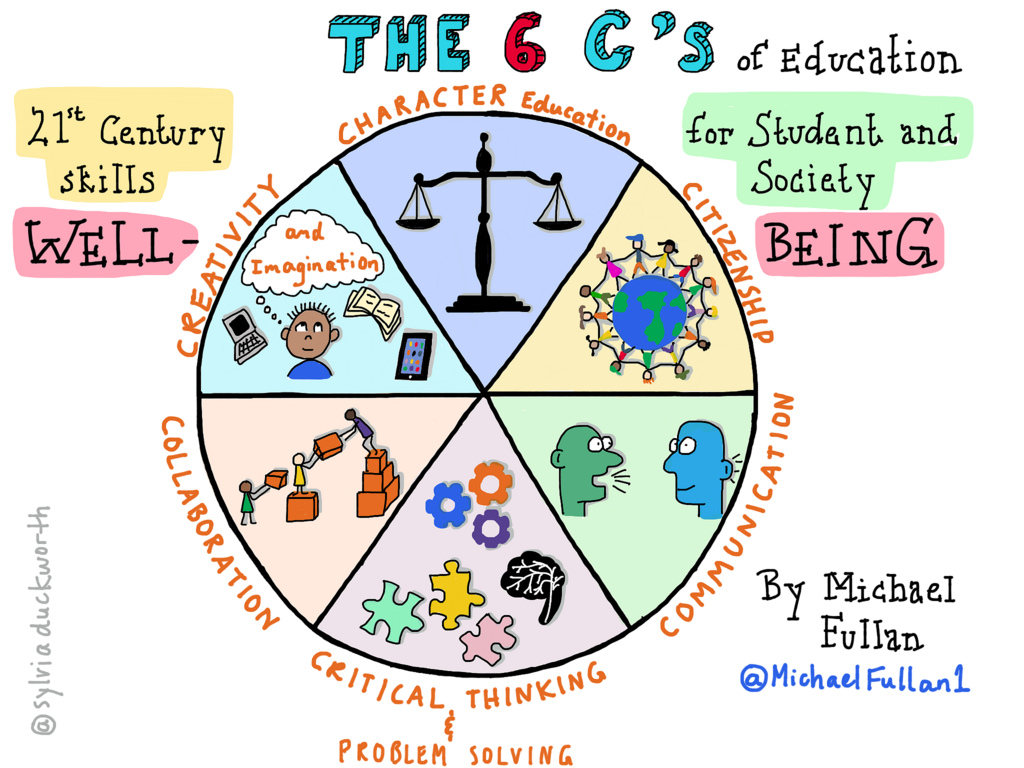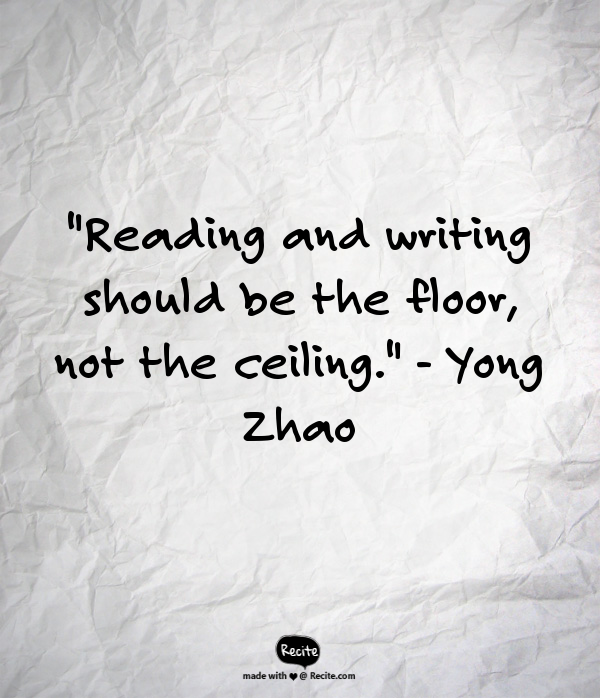BASICally, we need to raise the bar
This blog post is co-written by Lance McClard and Annick Rauch, after reflecting upon George Couros’ tweet (and the responses) as well as his blog post: Do the “basics” change over time?.
Twenty first century learning has been a buzzword in education for quite some time now. While some may be turned off by the jargon, it is important to remember the term, 21st century learning, is used for a reason. It has been recognized that the world we live in is abruptly changing and traditional skills alone, are not enough. Therefore, education should evolve in order to equip students for the world they live in now and to provide students with limitless opportunities in adulthood. An example of the quick pace evolution of the world and job markets was demonstrated during a TED Talk interview with Elon Musk in April of 2017. In the interview, Elon revealed that he believes within 20-30 years we will have self driving cars and semi trucks, a solution to Los Angeles traffic, humans on Mars, and efficient solar energy solutions. Although we agree that the 3 Rs (reading, writing, and arithmetic) are essential life skills, we don’t believe that these alone should be considered the basics. In his blog, George defined “basics” for himself as “the basic minimum skills that anyone would need to have in our world.” We agree with his definition and also question if reading, writing, and arithmetic would be enough.
If we explore things a little deeper, and try to define what basic skills one would need in this busy, information-filled world, it only makes sense to consider Michael Fullan’s 6 Cs: character, citizenship, communication, critical thinking & problem solving, collaboration, and creativity. Without these essential life skills, does knowing how to read, write, and do math (or any other curriculum content) even matter?

A recent example for me (Lance) involves my 7 year old son. He could read, and even, understand the directions provided on a bag of popcorn. However, he had to think critically and problem solve in order to not only figure out the correct way to place the bag in the microwave but also to determine the appropriate length of cook time. While the directions indicated cooking around two minutes, he had to discover the correct time to stop the microwave based on the intervals of popping. Being able to accomplish rote skills is essential, but in today’s world, at the very least, we have to apply that knowledge. I would argue, to be successful, we have to apply it in a new context that we may never have thought of before. My son did figure it out, by the way. Popcorn never tasted so good! Even at 7, my son has been conditioned that if he can’t figure something out, he should ask someone (in fact three people) and then just give up if he doesn’t get the help. I had to tell him why I wasn’t going to give him the answer, encourage him, and help him reflect on his process. This was him developing essential skills… a basic, no?
While we agree that writing is a basic skill that everyone should have, we believe that it is not enough. Writing is a method to use the basic skills of communication, critical thinking & problem solving, collaboration, and creativity. Additionally, opportunities to demonstrate the skills of character and citizenship are afforded in the digital age of writing. A recent example of what we believe showcased basic skills through writing, occurred in the very same thread George posed surrounding the concept of basics. The opening exchange of Tweets was a disagreement between George and a follower. As we started to read, flashbacks of political “debates” on social media were resurfacing in our heads. However, the tone was a respectful one. Both sides used critical thinking to make their points and see the opposing view. The respectful tone showcased the character of both sides and allowed for clear communication and growth that ended with a potential ball game and dinner (can we get in on that? :)) – George, two brackets! What a great example of the skills our students will need in the future. Many students already have social media accounts. However, they have limited online role models and/or marginal digital training. Is it a minimum skill to know how to have a positive online presence when the community you live in, potential employers, and relatives have access to what you post? Again, the basics of math, writing, and reading are still needed, but need to be reframed and built upon.
We know that over time, basics have changed. Jared Speight pointed out that starting a fire and creating stone tools were basics at one time and Matthew Haley explained that tackling and blocking in football have long been considered basics, but how they’ve been taught has changed considerably. We agree with both of these statements. Some basics have changed, some have evolved and some are outright new. So now what? We know that these changes are happening, but are we adjusting accordingly? While reading, writing and math have long been considered basics, the way we teach them has changed based on research and the need to evolve. We think that schools do a decent job of educating the public when it comes to how teaching the curriculum is changing (think reading and math strategies), but we need to do more than that. For example, there is more and more of a push in schools now to incorporate mental health in the classroom. This comes from the evolution of our fast-paced world and needing to equip our students to not only survive, but thrive. As George touched on in his post; it is crucial for schools to also focus on communicating why these new approaches are surfacing, so that everyone can understand why teaching just the “old basics” isn’t good enough anymore. The reality is that most people outside of education don’t focus on this issue because what they experienced while going through school has worked for them. It is our responsibility as educators to have the discussions we are having in our professional learning networks (PLNs) with those outside of education as well. We should listen to their voices and give them the same processing time we would expect for ourselves.

We loved the quote that George shared, by Yong Zhao. Basics, whatever they might be, are constantly changing. Whether we agree on what basics are or not, the world is changing faster than lightening speed, and we need to adapt along with it. Yes, there will always be a foundation on which we need to stand in this world, but that foundation constantly needs to be reinforced and added to. As our world changes and as we learn along with it, let’s not forget to take risks, try new things in the classroom and speak openly about it in order to open the lines of communication with the public. Let’s work toward the ceiling and consequently, the floor will be attained too.

Leave a Reply